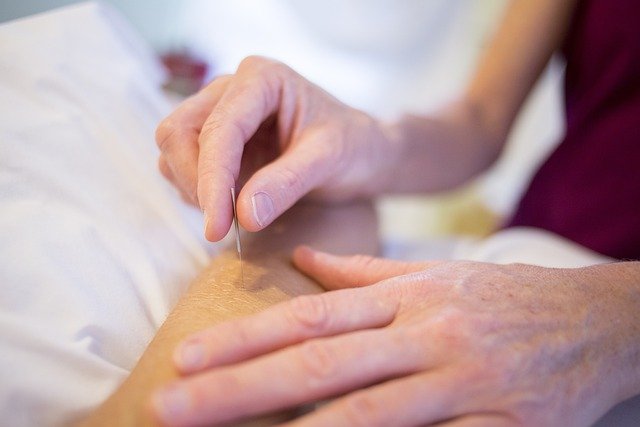Senior-Friendly Gyms: Fitness Centers for Healthy Aging
Gyms for seniors feature age-appropriate workouts that enhance strength, flexibility, and balance. With low-impact machines and tailored fitness classes, these gyms promote healthier aging, reduce injury risk, and support overall well-being for older adults.

What Makes Gyms for Seniors Different?
Senior-friendly gyms distinguish themselves through specialized features that address the unique physical and social needs of older adults. These facilities typically feature low-impact equipment designed to minimize joint stress while maximizing cardiovascular and strength benefits. The environment prioritizes safety with non-slip flooring, adequate lighting, and easily accessible equipment with clear instructions.
Staff members at these facilities often receive specialized training in senior fitness, understanding age-related physical changes and health considerations. This expertise enables them to provide appropriate modifications and ensure safe exercise practices. Many senior-friendly gyms also maintain quieter, less intimidating atmospheres compared to traditional fitness centers, creating comfortable spaces where older adults can focus on their health goals without feeling overwhelmed.
Benefits of Senior Wellness and Fitness Centers
Senior wellness and fitness centers offer comprehensive health benefits that extend far beyond basic exercise. Regular participation in structured fitness programs can significantly improve cardiovascular health, reduce the risk of chronic diseases, and enhance mental well-being. These centers focus on functional fitness, helping seniors maintain independence in daily activities through exercises that improve balance, coordination, and strength.
The social aspects of senior wellness centers provide equally important benefits. Many older adults experience isolation, and these facilities create opportunities for meaningful social interaction and community building. Group classes and shared fitness experiences foster friendships and support networks that contribute to overall mental health and motivation to maintain active lifestyles.
Specialized Programs at Senior-Friendly Gyms
Senior-friendly gyms typically offer diverse programming designed specifically for older adults’ needs and preferences. Water aerobics classes provide excellent low-impact cardiovascular exercise while reducing joint stress. Chair exercises accommodate individuals with mobility limitations, ensuring that fitness remains accessible regardless of physical capabilities.
Balance and fall prevention programs represent crucial offerings at these facilities. These specialized classes focus on improving stability and coordination, directly addressing one of the most significant health risks facing older adults. Strength training programs use lighter weights and resistance equipment to help seniors maintain muscle mass and bone density, which naturally decline with age.
Equipment and Safety Features
The equipment selection at senior-friendly gyms prioritizes safety and accessibility over high-intensity training tools. Recumbent bikes provide cardiovascular exercise with back support, while elliptical machines offer low-impact alternatives to traditional treadmills. Strength training equipment features easy-to-use mechanisms with clear weight adjustments and supportive seating.
Safety features extend throughout the facility design. Handrails line walkways and equipment areas, while emergency call systems ensure quick response to any health concerns. Many senior-friendly gyms also provide blood pressure monitoring stations and health screening services, allowing members to track their wellness progress and identify potential health issues early.
Cost Considerations for Senior Fitness Programs
Senior fitness programs vary significantly in cost depending on location, amenities, and membership options. Monthly memberships at dedicated senior fitness centers typically range from $30 to $80, while specialized programs at community centers may cost between $15 to $40 per month. Many facilities offer discounts for annual memberships or seniors on fixed incomes.
| Facility Type | Monthly Cost Range | Key Features |
|---|---|---|
| YMCA Senior Programs | $35-$65 | Pool access, group classes, social activities |
| SilverSneakers Network | $0-$25 | Insurance coverage, nationwide access |
| Senior-Specific Gyms | $45-$85 | Specialized equipment, medical partnerships |
| Community Centers | $15-$40 | Basic equipment, local programming |
Prices, rates, or cost estimates mentioned in this article are based on the latest available information but may change over time. Independent research is advised before making financial decisions.
Finding Local Senior Fitness Options
When searching for senior fitness options in your area, consider starting with local community centers, which often provide affordable programs specifically designed for older adults. Many YMCAs and JCCs offer senior-focused programming with sliding scale fees based on income. Healthcare providers and senior centers frequently maintain lists of recommended fitness facilities that specialize in senior wellness.
Insurance coverage can significantly impact costs, with many Medicare Advantage plans covering SilverSneakers memberships or similar fitness programs. Contact your insurance provider to understand available benefits and covered facilities in your area. Additionally, some healthcare systems operate their own senior wellness centers, often providing comprehensive programs that integrate fitness with medical care.
Senior-friendly gyms represent valuable resources for healthy aging, offering specialized environments where older adults can maintain and improve their physical fitness safely. These facilities provide not only exercise opportunities but also social connections and professional guidance tailored to the unique needs of seniors. By choosing appropriate fitness facilities and programs, older adults can significantly enhance their quality of life while maintaining independence and vitality throughout their golden years.
This article is for informational purposes only and should not be considered medical advice. Please consult a qualified healthcare professional for personalized guidance and treatment.




